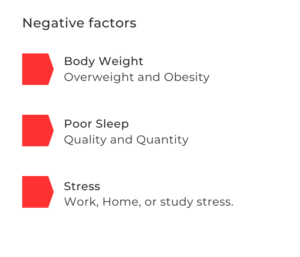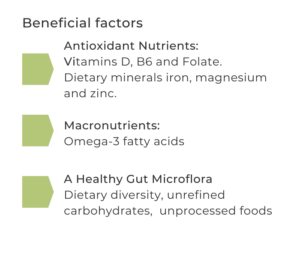Movember Focus on Young Men’s Health
Movember, which started in Australia in 2003, aims to raise awareness about prostate cancer and depression. Since then, it has grown into a global movement that funds male-oriented research and well-being initiatives. In this article, Consultant Dietitian Juliet Wilson emphasises the impact of nutrition on men’s health.
Men tend to delay seeking support for a health condition, often until there is a serious health issue. Statistically, men visit their GP a third less than women, although men are not healthier than women. Depression statistics indicate that approximately 9% of young men suffer from anxiety and depression. It’s not that men are more susceptible to mental health conditions than women, but too frequently they avoid seeking help. Young men, struggling with high rates of depression and anxiety, often use activities like gaming or gym workouts to avoid talking about their feelings. More distressingly, three-quarters of suicides are among men.
The origins of Movember aimed to raise awareness of depression in men, so it is only right that we do the same. Diet and lifestyle factors can influence our mental health in two ways: firstly, how the brain functions and, secondly, by supplying neuro-protective nutrients to help limit damage.
Healthy Fats Help Reduce the Risk of Depression
A growing body of research suggests that specific dietary patterns and a variety of nutrients and behaviours can help to reduce the risk and severity of depression, cognitive decline, and dementia.
Research suggests that increased intakes of omega-3 fatty acids, a variety of vitamins and minerals, and a healthy gut microflora can have a positive influence on our brain health. Conversely, poor sleep, being overweight and high stress levels can increase the risk and severity of depression and mental health disorders. Take a look at the summary illustration below.

Increasing your intake of omega-3 fatty acids can help support your brain health and decrease the risk of depression and anxiety. Try including some of the following foods into your daily diet.
- Fish: Herring, salmon, fresh tuna, and herring
- Nuts and seeds: Walnuts, chia seeds, flaxseeds, and hemp seeds
- Legumes (beans and peas): soya beans and kidney beans
- Oils: walnut, rapeseed, canola, hemp oil
About Ms Juliet Wilson
In addition to her clinical duties, Juliet has held various high-ranking positions in different settings. She served as the Nutrition Lead at numerous international athletic events and worked as the Global Nutritionist for Shell Energy in The Hague. Furthermore, she is a part-time Assistant Professor in Nutrition and Dietetics at The University of Nottingham.
Juliet continually expands her expertise in nutrition, enabling her to provide the most up-to-date specialised guidance to her clients and patients.
For further details or to schedule a Consultation or a Nutritional Assessment, please call 0207 079 2100 or click here for more information.






